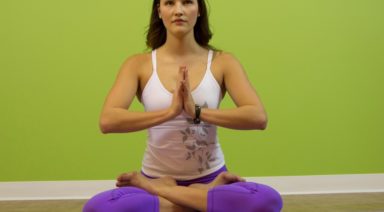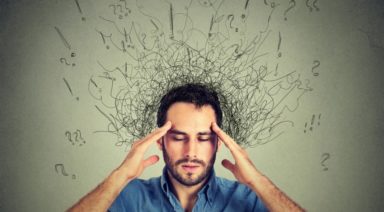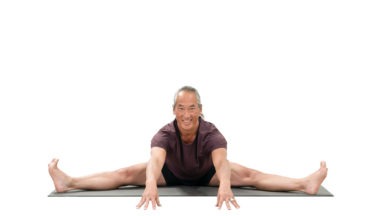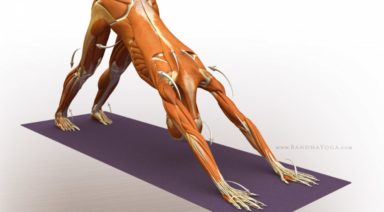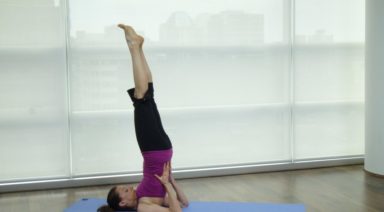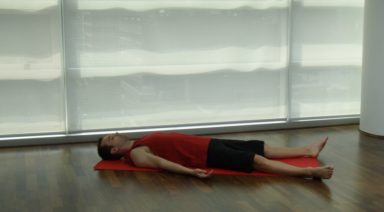How to Tell If You’re Being Controlled by Your Mind or Intellect
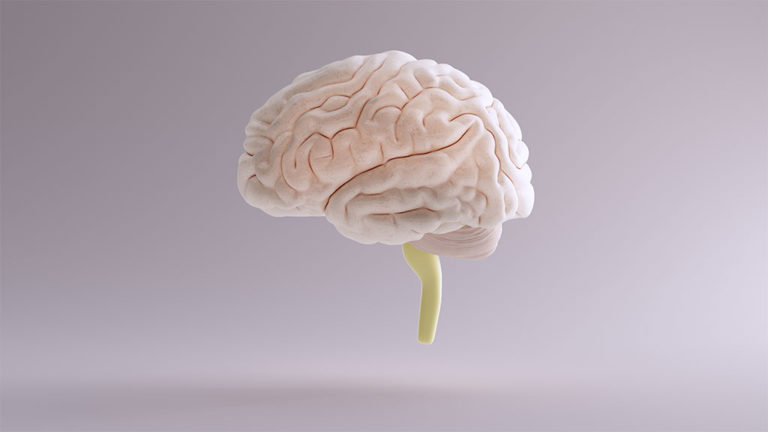
We make decisions every day. These decisions can fall under a few categories: ones we feel good about, ones we feel badly about, and ones that don’t make us feel anything.
The decisions we make can make our lives heaven or hell to live in because everything in this world is subject to the law of cause and effect, also known as the Law of Causation. We know what happens when we decide to drink too much alcohol one night. The next morning, we feel sick, tired, and most likely have a headache.
We won’t be able to function optimally and we suffer. Yet, even with this knowledge of the effect, people still decide to drink too much alcohol all too often. In order to understand why people do this to themselves, we have to break down the types of equipment we have as humans and better understand their functions. These understandings come from Vedanta: the ancient teachings of yoga as described in the Bhagavad Gita.
As humans, we are made up of matter and spirit. Spirit is the consciousness that gives rise to our matter. Spirit is your highest Truth. Without Spirit, there would be no matter. Our matter is comprised of three types of equipment; the body, the mind, and the intellect. The body is, of course, your physical manifestation with your organs, limbs, skin, bones, etc. This is what makes you tangible. Your mind is defined by Vedanta as the home of all your emotions like love, hate, anger, jealousy, joy, etc. It is also the home of your desires, likes, and dislikes.
Your mind is where your preferences live. And lastly, your intellect, your third and most important equipment is your ability to be objective and discern what is truth and what isn’t true based on knowledge and wisdom. Your intellect is the mature reasonable part of you that can question and think for itself when there’s adversity and when others are imposing their opinions and ideas on you. Your intellect stays centered regardless of the chaos happening externally.
How the Mind & Intellect Work
You might have already deduced that the mind is where your impulsive decisions live based on a whimsical emotion, which we all know those come and go rather quickly. Your intellect is what makes you think twice about that impulsive decision and hopefully stops you before you or someone else gets hurt.
The mind wants satisfaction now while the intellect understands that sometimes satisfaction may not happen now but, there will be satisfaction later with the right action, clarity, and patience. The popular (paraphrased) verse in the Bhagavad Gita, Chapter 18, “What’s nectar, in the beginning, becomes a poison in the end. What’s poison, in the beginning, becomes nectar in the end.”
If we could understand this phrase and live by it, we wouldn’t have any problems or stress in our lives ever again. We would understand how to decide what to do when to do it, and with whom. But, and this is a big but, although we can conceptually understand the phrase above, we aren’t wise enough to live by it. Here’s the hook, line, and sinker: we aren’t wise enough because our minds are too strong and our intellects are too weak. Recall that our minds are the home of our emotions and desires.
So if this equipment is strong it means that we are controlled by our emotions and desires first. We allow these emotions and desires to take over. This means our ability to rationalize and be objective isn’t strong enough hence our intellects are weak. With a weak intellect, you’ll be tossed and turned in all directions by the impulses of your senses. In the Bhagavad Gita and the Yoga Sutras of Patanjali, there’s a visual example to better showcase how your senses, body, mind, intellect, and Spirit interplay.
Imagine a horse and carriage, with its driver controlling the reins and the passenger inside the carriage. The horse represents our five senses going in all directions. The reins represent the mind because wherever the senses go the mind goes, too. The driver represents the intellect. So the intellect has to be strong to control the reins attached to the horse in order to arrive safely to their destination.
The carriage is your body. The passenger inside the carriage is the spirit. What would happen if the driver let go of the reins? The horse would run all over the place, the carriage wouldn’t be safe, and the passenger wouldn’t have a place to sit during their journey.
Therefore, the process of taking control of your life falls on the priority to develop your intellect and make it so strong that no matter where those horses (the senses) want to roam, you know how to pull the reins (the mind) back into the right position.
When you make a decision you use one of the following methods:
- Just your mind
- Just your intellect
- Both your mind and your intellect
If you only use your mind, you could be pulled by your senses before you make the decision. You’ll feel confused and doubt about your decision. You’ll then have suffering involved with the outcome of the decision. If you use your intellect, you’ll remain calm before, during, and after the decision has been made.
You’ll have no doubts and be clear. You may be feeling different things, but understand clearly what needs to be done. If you use your mind and your intellect together, then both your emotions and your thought processes are in agreement and you’ll feel at peace knowing that you’ve made the right decision.
Assessing Your Mind
Therefore, a way to assess if you’re being controlled by your mind or your intellect is to observe how you feel. Do you feel confused, stressed, or drained? This implies your mind has taken the reins and you’re just going along for the ride. Instead, do you feel calm, centered, and clear? If so, your intellect has taken over the reins and you’re in control.
If you have any addiction, then your mind has taken over that part of you. You’re a prisoner to that addiction. You can’t be happy or content without it. We are all addicted in some capacity to something or someone since we are attached. The list below is intended to read through and imagine you are asked to stop using or being around any of these things for at least 30 days. Notice your reaction when you read each item. If you immediately think, “Heck no. I can’t last 30 days without doing this” then that item has control over you and you are a prisoner to that thing. This means your mind is too strong and you’ve got to strengthen that intellect.
- Coffee
- Drugs (not prescription)
- Shopping
- Sugar
- Alcohol (wine, beer, or liquor)
- Working out (you know when it’s too much)
- Sex
- Gossiping / Drama
- Social Media
- Cigarettes
- Watching TV
- Complaining
- Going out/ hanging out with friends
- Video games
- Relationship with Significant Other
- Music
- Food (excessive)
What could you not live without in the list above? The ones you read that didn’t trigger you at all you don’t have a problem with. The ones you read which triggered you are the ones that your mind has become attached to. This means you’re not in control. That item is in control of you. The only way to get control back is to develop your intellect.
How to Gain Control
There are three things you should do daily in order to help yourself get a stronger intellect.
- Question everything. This requires reflection and an ability to unlearn. Unlearning is the most important tool to use when practicing yoga. There’s far too many learned behavior and opinions that we’ve adopted to be our own truths. If we question everything we will be able to rise above these conditioned behaviors.
- Never take anything for granted. Not only is this about being grateful for what you have and don’t have, but it’s about realizing that the trees give you oxygen daily, thus let you live. We shouldn’t take the trees for granted. The sun gives you vitality and light every day. We shouldn’t take the sun for granted. Your body heals itself every minute of the day. We shouldn’t take that for granted. And the list goes on. Never take anythingfor granted.
- Keep studying philosophy and yourself. The above imply that you’ll be studying yourself and the world’s antics, but just to make sure it wasn’t missed, studying and gaining knowledge will eventually strengthen your intellect when you apply the teachings and make the knowledge convert to wisdom.
The reason it’s important to develop your intellect, is that once you have strengthened it, you’ll be able to reunite with the true you, the Spirit. Joining with this highest Truth is the reason the ancient teachings of yoga tell us to begin with a physical practice (asana). We have lost our way and building our intellect is the bridge to finding our way again. When we get there, we will be free, happy, and blissful. As the cliché states, “The Truth will set you free.” No more tossing around with the world because the mind isn’t being tossed with it.
Your future is in your hands. It all depends on what you do in the present. Hence, circling back to the Law of Cause and Effect. Study it and understand how you’ve gotten to where you are today by your past actions and you’ll easily see how your future will depend on what you do today. Take your life back! It’s your human birthright!
Mind Yoga: Master Your Mind, Master Your Life
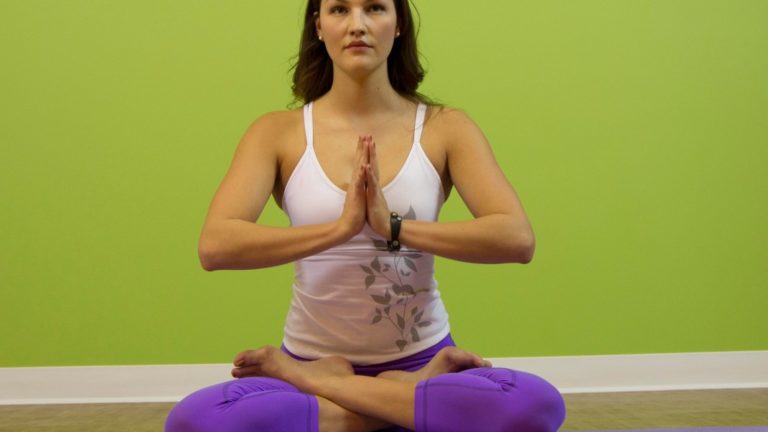
Everyone is faced with challenges and obstacles throughout their lives and on their path to fulfillment, happiness and success. It’s not what happens to us in life that determines our outcomes, but rather how we respond to what happens to us. Having a knee-jerk emotional reaction to the challenges in life can create disappointing results. When we take a moment to process these challenges, and “choose” an appropriate response, we are more likely to make a wise decision.
In the human brain, when we have stress and experience the emotion of fear, our body sends out a massive amount of adrenaline into our system. This actually shuts down our logical thinking frontal lobe. Therefore, when fear rises, intelligence plummets. When you look back, can you match some of your worst decisions with a highly emotional state?
Meditation is a practice where you learn to “observe” your thoughts and emotions. As you do this, you can slowly begin to detach and analyze them so that you can slow down and make better decisions. The longer you meditate, the more that you’ll realize that while you can “have” emotions, you don’t need to “be” your emotions. This is a powerful distinction that builds your emotional intelligence.
We practice emotional intelligence when we allow ourselves to feel an emotion and then choose how we want to process and respond to that emotion. This allows us to create a more proactive response. The quality of our life depends on the quality of our perspective. When we are open-minded and willing to put our ego to one side, we can change the way we look at our life’s challenges. Meditation gives you the flexibility to change your perspective on life’s events.
A small adjustment in perspective may give you the power to make a dramatic and positive change in your life’s experiences.
Achieve Mental Strength
We are constantly bombarded with negative messages from the world. If we let these messages control and affect our own thoughts, then we too are letting the outside world control our thoughts. We end up having thoughts which are not actually ours. They are the thoughts of our culture, our society and of our environment. If you have any contact whatsoever with the daily news, internet news, newspapers of any kind or radio, you will be continually attacked with messages of negativity and fear. One would think that the world was always coming to an end! Unfortunately, disaster and bad news sells.
Creative and successful people have learned to monitor, control and choose their thoughts. This requires mental strength and mental discipline. They choose thoughts that support their visions and their dreams. They discard thoughts that are fear-based, negative and unproductive. This makes them original thinkers, innovators and leaders. Meditation is an effective practice for learning mental discipline.
It always amazes me how many people have discipline in so many areas of their life (their diet, their fitness and their schedule); however, few people practice any form of mental discipline – which is what really determines the outcomes and results that we have. The quality of your thoughts, determines the quality of your life.
Master your mind and you master your life! Successful, happy and balanced people have mental discipline, mental flexibility and mental strength. Just as your yoga practice helps you to create physical strength and flexibility, meditation assists you in developing mental flexibility and strength. When practiced with patience and persistence, meditation is the tool that will help you to master these areas as well.



